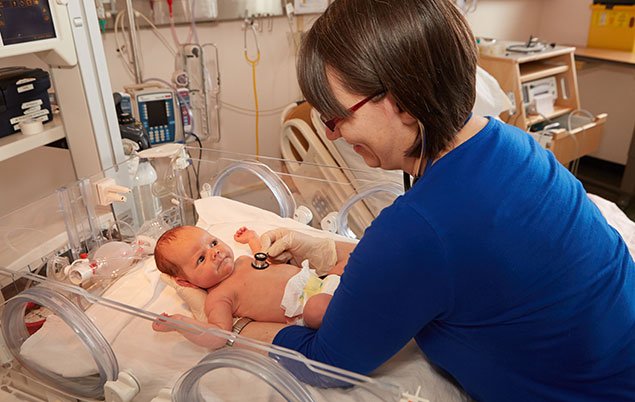Every childbirth comes with joy and anticipation; it is a momentous occasion.
Knowing that the cost of giving birth in Ontario with OHIP will be relatively low comes with peace of mind because certain things will be covered.
Who wouldn’t love lesser expenses, right?
In Ontario, Canada, the province’s healthcare system, known as the Ontario Health Insurance Plan (OHIP), plays a significant role in ensuring that families can experience this precious milestone without facing exorbitant financial burdens.
Understanding the cost of giving birth in Ontario with OHIP is essential for expectant parents to be well-prepared and informed as they embark on their journey toward parenthood.
Let’s get to it already, yes?
Cost of Giving Birth in Ontario With and Without OHIP
| S/N | Medical Procedure for Giving Birth in Ontario | Average Cost with no OHIP | Average Cost with OHIP or Medicare Coverage |
|---|---|---|---|
| 1. | Home birth and delivery with a midwife | C$100-C$150 | C$0 |
| 2. | Prenatal ultrasound | C$300 – C$500 | C$0 – C$300 |
| 3. | Birth and delivery in the hospital | C$5,000- C$8,000 | C$0 – C$1,000 |
| 4. | Cesarean section in the hospital | C$10,000 – C$12,000 | C$0 – C$1,000 |
| 5. | Home birth and delivery with midwife | C$2,500 | C$860-C$2,500 |
Advantages of OHIP
One of the most significant advantages of giving birth in Ontario is the comprehensive coverage provided by OHIP.
OHIP is a publicly funded healthcare system that covers essential medical services, including prenatal care, childbirth, and postnatal care.
This means that most medical expenses related to pregnancy and childbirth are covered by the provincial government, ensuring that families can focus on the health and well-being of both the mother and the newborn rather than worrying about hefty medical bills.
5 Services Covered Under OHIP

1. Prenatal Care: OHIP covers the costs of regular prenatal check-ups, screenings, and tests that are essential for monitoring the health of the mother and the developing baby.
2. Hospital Stay: The cost of a standard hospital room during labor and delivery is covered by OHIP.
However, patients may choose to upgrade to a private room, which could involve additional costs.
3. Obstetrician and Midwife Services: The fees for obstetrician and midwife services are covered by OHIP.
These professionals are vital in ensuring a safe and healthy pregnancy and delivery.
4. Medical Procedures: OHIP covers medically necessary procedures related to childbirth, such as cesarean sections and epidurals.
5. Newborn Care: Medical care for the newborn, including vaccinations and necessary medical examinations, is covered by OHIP.
5 Out-of-Pocket Expenses For Expectant Mothers in Ontario
While OHIP substantially reduces the financial load associated with childbirth and provides comprehensive coverage for most aspects of pregnancy and childbirth, there are certain expenses that expectant parents should be aware of that are not covered:
1. Maternity Clothes: Costs for maternity clothing are typically not covered by OHIP and may need to be budgeted separately.
2. Private Room Upgrades: While the cost of a standard hospital room is covered, selecting a private or semi-private room could incur additional expenses.
As such, if a patient opts for a private or semi-private room instead of a standard hospital room, there may be additional costs involved.
3. Non-Medical Services: Services that are not medically necessary, such as cosmetic procedures, might not be covered.
4. Prescription Medications: Any prescription medications that are not covered by OHIP would require out-of-pocket payment.
5. Additional Services: Some optional services, like prenatal classes or specialized birthing techniques, may require additional payment.
8 Benefits of Giving Birth in Ontario

Ontario, a province in Canada, offers an array of exceptional benefits for expectant parents.
From world-class healthcare facilities to comprehensive support systems, the advantages of giving birth in Ontario extend beyond its picturesque landscapes.
Here, we explore the compelling benefits that make Ontario an attractive choice for welcoming your new bundle of joy.
1. Robust Healthcare System: Ontario boasts a robust healthcare system that places a strong emphasis on maternal and child health.
The Ontario Health Insurance Plan (OHIP) ensures that essential medical services, including prenatal care, childbirth, and postnatal care, are accessible to all residents, significantly reducing the financial burden associated with childbirth.
2. Access to Expert Medical Professionals: Giving birth in Ontario means accessing a diverse range of medical professionals, including experienced obstetricians, midwives, nurses, and pediatricians.
This access ensures that you and your baby receive top-notch medical care throughout every stage of the pregnancy and beyond.
3. Comprehensive Prenatal Care: Ontario’s healthcare system offers comprehensive prenatal care, including regular check-ups, screenings, and tests.
This proactive approach to monitoring the mother’s and baby’s health helps identify and address potential concerns early, promoting a healthier pregnancy.
4. Modern and Well-Equipped Hospitals: Ontario is home to modern, well-equipped hospitals and birthing centers that prioritize the comfort and safety of both mothers and newborns.
From state-of-the-art delivery rooms to specialized neonatal care units, these facilities ensure a smooth and safe childbirth experience.
5. Supportive Maternity and Parental Leave: Ontario’s Employment Standards Act provides maternity and parental leave benefits to eligible employees, allowing new parents to take time off work to care for their newborns.
This support promotes a healthy work-life balance and bonding time with the newest addition to the family.
6. Diverse and Inclusive Environment: Ontario embraces a diverse and inclusive environment, welcoming families from all walks of life.
This cultural richness is reflected in the healthcare system, where professionals are trained to provide sensitive and culturally competent care to a wide range of backgrounds and preferences.
7. Access to Educational Resources: Expectant parents in Ontario have access to a wealth of educational resources, including prenatal classes, workshops, and support groups.
These resources empower parents with knowledge and skills, helping them feel confident and prepared for the challenges of parenthood.
8. Postpartum Support: Ontario’s healthcare system extends its support beyond childbirth with postpartum care and follow-up appointments.
This focus on postpartum well-being ensures that new mothers receive the necessary care and guidance during the critical period after giving birth.
Choosing where to give birth is a significant decision that can shape your childbirth experience and the early days of parenthood.
Ontario’s commitment to accessible healthcare, expert medical professionals, comprehensive prenatal care, and supportive environments make it a compelling destination for expectant parents.
Embracing the benefits of giving birth in Ontario ensures that you embark on this extraordinary journey with the knowledge that you and your baby will be well cared for, allowing you to focus on the joy and wonder of welcoming a new life into the world.
Also see: OHIP – Open Work Permit Employment Letter
How Long Do You Stay in the Hospital After Child Birth in Ontario?

The arrival of a new life marks a profound moment in one’s journey, and the period immediately after birth is crucial for the well-being of both the mother and the newborn.
In Ontario, Canada, the duration of hospital stay after childbirth is a well-considered balance between ensuring the health and recovery of the mother and providing adequate care for the baby.
Here, we explore how long you can expect to stay in the hospital after giving birth in Ontario and the factors influencing this decision.
Postpartum Hospital Stay in Ontario
The length of the postpartum hospital stay in Ontario can vary depending on a range of factors, including the type of delivery (vaginal or cesarean section), the health of the mother and baby, and the policies of the healthcare facility.
Generally, the postpartum stay can be categorized as follows:
1. Vaginal Birth: After an uncomplicated vaginal birth, new mothers typically stay in the hospital for approximately 24 or 36 to 48 hours.
This duration allows healthcare professionals to monitor the mother and the baby, ensuring they recover well and have no complications.
2. Cesarean Section: If a cesarean section is performed, the hospital stay is usually extended to around 48 or 60 to 72 hours.
This longer stay accounts for the recovery period after major abdominal surgery, during which medical staff closely monitor the healing process and ensure the mother’s comfort.
5 Critical Factors Influencing Hospital Stay Duration
1. Health and Well-being: The health of the mother and the newborn is the primary consideration for determining the duration of hospital stay.
Healthcare providers assess any potential complications, the mother’s recovery from labor or surgery, and the baby’s feeding and general well-being.
2. Mother’s Choice: In Ontario, the decision to stay in the hospital after childbirth is often a collaborative one between the healthcare team and the mother.
Some mothers may choose to leave the hospital earlier if they are confident in their recovery and feel comfortable doing so.
3. Infant Care and Feeding: Healthcare professionals ensure the newborn is feeding well and maintaining a healthy body temperature before discharging the mother and baby.
Adequate feeding and weight gain are crucial indicators of the baby’s well-being.
4. Support at Home: The availability of support at home is also a consideration.
Healthcare providers may take into account whether the mother has a supportive network and a comfortable environment for postpartum recovery.
5. Complications: In cases of complications during childbirth or health concerns for the mother or baby, the hospital stay may be extended to provide necessary medical attention.
The duration of the hospital stay after giving birth in Ontario is tailored to prioritize the health and well-being of the mother and the newborn.
While the average postpartum stay varies based on the type of delivery and individual circumstances, healthcare professionals aim to provide the necessary care and support during this critical period.
Communication between expectant parents and their healthcare providers is essential in making informed decisions about the length of the hospital stay, ensuring a smooth transition to the next phase of parenthood.
What to do After a Baby is Born in Ontario?

After the arrival of your baby, a new chapter begins—one that requires careful navigation through various practical and emotional steps.
In Ontario, Canada, a supportive healthcare system and an array of resources are in place to guide you through this transformative time.
In this article, we outline what to do after a baby is born in Ontario, ensuring a smooth transition into parenthood.
1. Healthcare and Medical Care: Once your baby is born, the healthcare provider will perform an initial medical examination to ensure the baby’s well-being.
This assessment includes vital signs, weight, length, and overall health checks.
The medical staff will also monitor the baby’s ability to feed and maintain body temperature.
2. Birth Registration: In Ontario, it’s important to register the birth of your child.
This can be done online through the ServiceOntario website.
You’ll need to provide details such as the baby’s name, date of birth, and parents’ information.
3. Apply for a Birth Certificate: After registering the birth, you can apply for a birth certificate through the same ServiceOntario portal.
A birth certificate is an essential document that may be required for various purposes in the future.
4. Obtain a Health Card for Your Baby: Just like adults, babies need their health card to access healthcare services covered by the Ontario Health Insurance Plan (OHIP).
You can apply for your baby’s health card online or in person at a ServiceOntario center.
5. Choose a Pediatrician or Family Doctor: It’s important to select a pediatrician or family doctor to provide ongoing medical care for your baby.
If you don’t have one already, you can ask for recommendations from friends, family, or your healthcare provider.
6. Feeding and Care: Whether you choose breastfeeding or formula feeding, ensuring your baby’s nutrition is a top priority.
Seek guidance from healthcare professionals if you have questions or concerns about feeding.
Additionally, learn about diapering, bathing, and general care to ensure your baby’s comfort.
7. Postpartum Care for the Mother: Caring for yourself is equally important.
Rest, proper nutrition, and emotional support are vital in your recovery.
Attend postpartum check-ups to ensure your physical and emotional well-being.
8. Bonding and Emotional Support: Building a strong bond with your baby is a beautiful journey.
Spend quality time with your little one, engage in skin-to-skin contact, and communicate through soothing words and gentle touch.
Don’t hesitate to reach out to support groups, friends, or family if you’re experiencing emotional changes or postpartum mood disorders.
9. Parental Leave: Ontario provides parental leave benefits for eligible employees, allowing parents to take time off work to care for their newborns.
Make sure you’re aware of your rights and responsibilities regarding parental leave.
10. Capture Precious Moments: Time flies, and those early moments with your baby are precious.
Capture these memories through photographs and videos to cherish for years to come.
Welcoming a baby into the world is an extraordinary experience, and the steps that follow are equally important.
In Ontario, a network of resources, healthcare services, and support systems are designed to assist you on your journey into parenthood.
From registering the birth and obtaining a health card to ensuring proper care, nutrition, and emotional well-being, the steps you take after your baby is born pave the way for a healthy, happy, and fulfilling start to this new chapter of life.
How to Financially Prepare for a Baby in Ontario: 10 Important Steps

Welcoming a baby into your life is a joyous and transformative experience, but it also comes with its fair share of financial responsibilities.
For residents of Ontario, Canada, preparing financially for a baby involves careful planning and consideration to ensure a stable and comfortable environment for your growing family.
In this article, we’ll explore practical steps to help you financially prepare for a baby in Ontario.
1. Create a Budget: The foundation of any financial plan starts with a budget.
Take a comprehensive look at your current income, expenses, and savings.
Factor in new baby-related expenses such as diapers, clothing, food, and healthcare.
A clear understanding of your financial situation will help you make informed decisions.
2. Understand Parental Leave Benefits: Ontario offers parental leave benefits for eligible employees, providing income support during your time away from work after the baby arrives.
Familiarize yourself with these benefits and how they will affect your finances.
You can access the Employment Standards Act to learn more about your rights and responsibilities.
3. Review Your Health Insurance: Ensure that your health insurance, particularly your employer-sponsored plan, covers maternity care, prenatal visits, and childbirth-related expenses.
If there are any gaps in coverage, consider options for supplemental insurance or exploring the Ontario Health Insurance Plan (OHIP).
4. Start a Baby Fund: Setting up a dedicated savings account specifically for baby-related expenses can help you stay organized and manage costs more effectively.
Regularly contribute to this fund to cover initial expenses, unexpected medical costs, and ongoing needs.
5. Research Childcare Costs: Childcare expenses can be significant, especially if both parents plan to return to work.
Research the cost of daycare centers, babysitters, or nannies in your area.
Understanding these expenses will help you plan for them in your budget.
6. Plan for Housing Changes: Depending on your current living situation, you might need to adjust to accommodate a growing family.
This could involve moving to a larger space or making home renovations.
Estimate the associated costs and plan accordingly.
7. Shop Smart for Baby Essentials: Babies require various items, from cribs and strollers to clothing and diapers.
Look for sales, discounts, and second-hand options to help you save money while still providing quality items for your baby.
8. Research Parental Assistance Programs: Ontario offers several assistance programs that can help alleviate financial strain for families.
These programs include the Ontario Child Benefit, the Canada Child Benefit, and tax credits.
Research the eligibility criteria and application process for these programs.
9. Minimize Non-Essential Spending: Review your discretionary spending habits and identify areas where you can cut back.
Redirecting funds from non-essential expenses can help you build a stronger financial foundation for your growing family.
10. Plan for the Future: While immediate expenses are a priority, don’t forget to plan for your family’s long-term financial goals, such as education funds and retirement savings.
Consider speaking to a financial advisor to create a comprehensive financial plan that takes these goals into account.
Also see: Healthcare in Canada for newcomers and workers
Conclusion
Giving birth in Ontario with the support of OHIP offers expectant parents the peace of mind that comes with knowing that their essential medical needs will be covered.
The province’s commitment to ensuring accessible healthcare during pregnancy and childbirth reflects its dedication to the well-being of its citizens.
While certain non-medical and optional expenses might still apply, the overall cost burden for families is significantly reduced.
As expectant parents, the cost of giving birth in Ontario with OHIP is greatly reduced, giving you the time to focus on the joy of welcoming your baby.
You can rest assured that Ontario’s healthcare system is there to provide the care and coverage they need.
For further inquiry, leave us a message in the comments below, like, and share.

